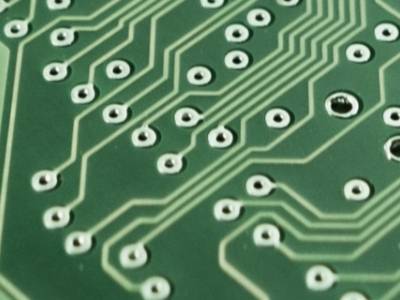LLM in information technology law scope any scope ? iam completing my UG law degree in 10months thinking of doing masters in information technology. i have good reasonable technical knowledge in computers and internet. been as designer,programmer and in online marketing for 3yrs also worked in Intellectual property firms but nothing related to cyber or information technology law....may i know what is the scope for it ?
LLM in information technology law scope what scope ?
Posted Aug 19, 2007 20:59
Posted Aug 20, 2007 14:57
It depends what you mean. Different degree schemes have different scope and also within that different emphasis. You can see the subject narrowly which would probably be intellectual property questions about control of use and development. Obvious issues relate to existence of copyright and the treatment of databases, as well as patentability (e.g the perennial question of patentability of computer programs). and the relationship between trade marks and the use of daomain names. There are other issues relating more generally to content industries and the development of user generated content. Linked to this quite often are competition law questions - basically the extent to which the holder of an IPR can exclude competing firms. Some might also look at the transactional aspects of the Internet - e-Commerce in all its various manifestations (jurisdiction, establishing the existence of a contract, difference between B2B and consumer contracts; conflicts; ISP liability of 3rd party content). Computer law will generally raise questions about data protection (and privacy). Information technology can be linked to broader questions such as why and how regulate (Code as Law, impact on human rights; ethics) and can generally move into the field of communications regulation (such as telecommunications, also heavily based in competition law, and broadcasting). There are also issues about control of content on the Internet and misuse of the Internet - broadly cybercrime.
Posted Aug 20, 2007 19:29
is law firms hiring ppl who are specalized in information technology law ?
Posted Aug 22, 2007 13:35
anyone ?
Posted Aug 22, 2007 15:27
There are certainly law firms that have departments specialising in this sort of work - you could have a look at Chambers or the Legal 500 to get a feel for this. If you are interested in specialising in this area of law then I'm sure study in the area cannot hurt. In addition I would have thought your technical background would be an advantage as you will be famililar with the technology that is the subject of the law. May be you could try contacting some of the firms and ask. You should be aware that an LLM focussing in this field is not going to count as a qualifying law degree if you haven't got one already and so you would need to do the LPC (or Scottish equivalent if practising in Scotland) too.
Other Related Content
A Fresh Look at Technology LL.M.s
Article Jun 26, 2017
A look at technology-focused LL.M. programs that prepare students for the spectrum of legal work in the sector.
Hot Discussions
-
Georgetown LLM 2024/2025 applicants
Nov 16 09:22 PM 40,023 209 -
Stanford 2024-2025
Nov 07, 2024 35,053 117 -
NUS LLM 2024-25 Cohort
Oct 25, 2024 5,854 34 -
Warwick or Birmingham
Nov 10, 2024 1,161 5 -
Harvard LLM 2025-2026
Nov 12, 2024 1,604 5 -
LL.M. Scholarship Rates?
Nov 09, 2024 2,500 5 -
EU citizen barred in the US -- will an LLM from an EU school help me practice law somewhere in the EU?
Nov 15 12:58 AM 134 4 -
NUS vs Peking
Nov 09, 2024 179 4




